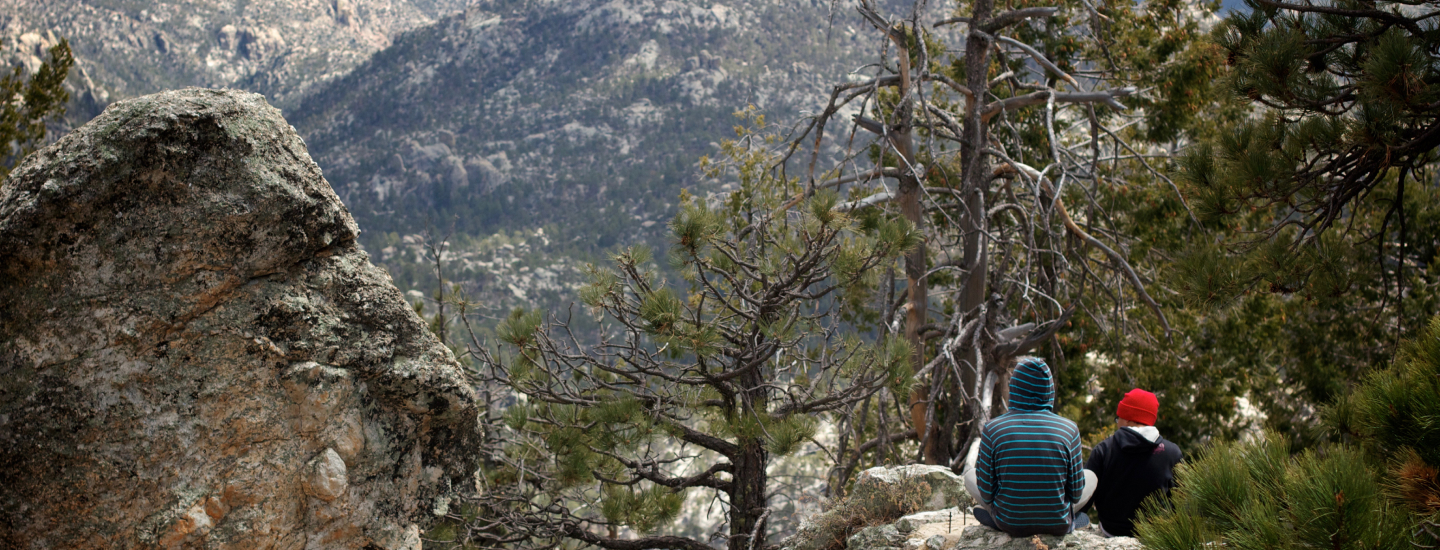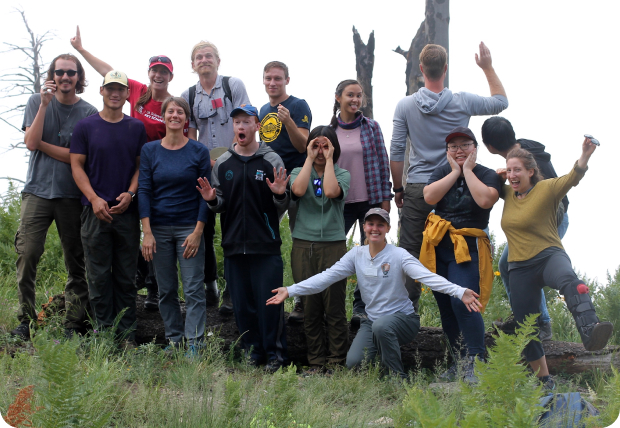





This ACES class has taught me about doing science with the end goal of students making a personal connection to the phenomenon.
I loved all of the presenters. I learned so much that I was sharing articles with people who are not even involved with education.
I loved all the community connections and presentations. I learned so much from the other scientists and from the cohort group. This was amazing.
I enjoy talking to another teacher from a different site. It adds a different perspective.
[I learned that] climate change isn’t a “bad word” and we should be speaking it more in the classroom as science teachers.
Rebecca Lipson
rlipson@email.arizona.edu
Dr. Adelle McNiece
Adelle.McNiece@tusd1.org
Agnese Nelms Haury Program in Environment and Social Justice
Building Environmental and Climate Education Equity and Action in K-6 Education
As communities develop climate response plans to mitigate the hardships a changing climate brings, the gap between the haves and have-nots becomes apparent. This is seen even in Tucson, the third-fastest-warming city in the U.S., where inequity results in significantly less tree shade in the southern parts of the city compared to the north. Developing the next generation of environmental leaders to address these challenges locally requires inclusion of people from diverse backgrounds. However, many young people do not gain exposure to environmental science and climate change topics, nor do they build connections to their local environments, in part because their teachers are not well versed in these topics.
This project brings together Sky School and Project WET with the Tucson Unified School District. We will recruit two cohorts of twenty 4th, 5th, and 6th grade teachers in underserved schools for monthly, year-long professional development days on climate science and sustainability, emphasizing local issues. Through connections with University of Arizona researchers and community leaders, teachers will build knowledge of the science behind climate change and its local impacts. They will be supported by curriculum experts in creating engaging lessons to implement with their students. As a final project, students and teachers will utilize project-based learning to create and carry out an action plan on a sustainability topic they identify as important in their school or community.
This project will develop a cohort of teachers engaged in climate and sustainability, who will influence students at underserved schools for years to come.
We are trying to find out whether K-12 teacher professional development programs impact these teachers’ classroom practices.
Your participation in the research will require approximately 1 hour of your time over 1 year. The research involves completion of surveys and potentially short interviews. The surveys will ask for demographic and employment information, but you may leave these questions blank if you like. We will do our best to protect your privacy throughout the research process. Your name will not be used in any research outputs.
Control group: a survey will be administered, either online or in person. This survey will be administered at the beginning and end of 1 year of time. Two separate control groups will be recruited, one per project-year.
Intervention group: a survey will be administered, either online or in person. This survey will be administered at the beginning of each project year to each cohort of teachers. Participants will then participate in the program over 1 year of time. During the program, participants will be observed and occasionally interviewed by project personnel at a time and location of their choice (e.g. before/after program activities) to determine what aspects of the program seem impactful and useful. Participants will be observed by the researcher during the program activities. At the end of the 1-year cohort experience, participants will fill out another survey.
Depending on time availability of project personnel, we may also request that participants fill out further surveys or respond to interview requests in the 1-5 year period after their participation in the program.
An Institutional Review Board responsible for human subjects research at The University of Arizona reviewed this research study and found it to be acceptable, according to applicable state and federal regulations and University policies designed to protect the rights and welfare of participants in research.